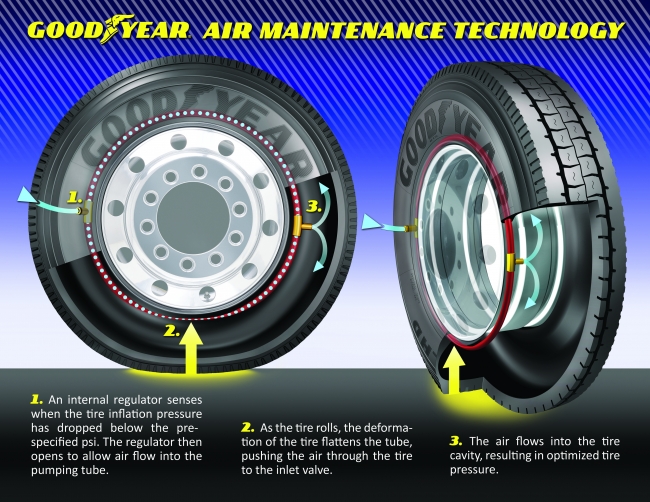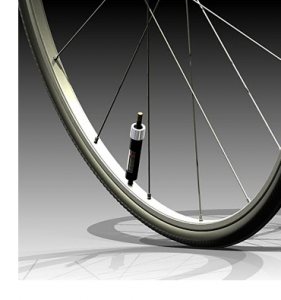The £440m in unnecessary fuel bills paid each year by British motorists because they fail to keep their car tyres properly inflated, could be slashed following the launch this week of self-inflating tyres from Goodyear.
Correctly inflated tyres last longer, provide better road handling and improve fuel efficiency. Whilst the saving in fuel costs each month for the average driver is modest, it is estimated that under-inflated tyres lead to 12 megatons of global CO2 emissions every year.
Tyre pressure monitoring systems (TPMS) prompt the driver to top up on air by sending a signal to the car’s dashboard if the pressure falls below the correct level, but the Goodyear system goes further; air is pushed into the tyre cavity by the deformation of the tyre as it rolls over the road.

Estimates on how drops in tyre pressure affect fuel efficiency vary, but even a tyre under-inflated by 10 per cent can shorten the tyre’s life by between 9 and 16 per cent.
Self-inflating bicycle tyres
 A new design of self-inflating bicycle tyre promises to do away with the need to ever carry a pump. The PumpTire design draws air through a valve into a thin tube, called a lumen, which runs around outside of the tyre. As the wheels turns, the air inside the lumen is forced into the tyre and inner tube. The rider can even alter the tyre pressure with a simple adjustment to a dial on the handlebars.
A new design of self-inflating bicycle tyre promises to do away with the need to ever carry a pump. The PumpTire design draws air through a valve into a thin tube, called a lumen, which runs around outside of the tyre. As the wheels turns, the air inside the lumen is forced into the tyre and inner tube. The rider can even alter the tyre pressure with a simple adjustment to a dial on the handlebars.
Eco stickers on all car tyres
The ETA lobbied for all tyres to have an obligatory efficiency sticker, similar to those now seen on fridges and washing machines, but the environmental rating has ended up being little more than a voluntary programme with few rules on how or where the information should be displayed.
Choice of tyre can save money and emissions
At first sight there may appear to be little difference between models of car tyre, but certain designs improve fuel efficiency by reducing rolling resistance, the friction between the tyre and the surface of the road.
Tyre design has a direct influence on a car’s environmental performance: the majority of road traffic noise comes from tyre/road contact, and tyres determine up to 30 per cent of a vehicle’s fuel consumption and CO2emissions.
0 Comments View now